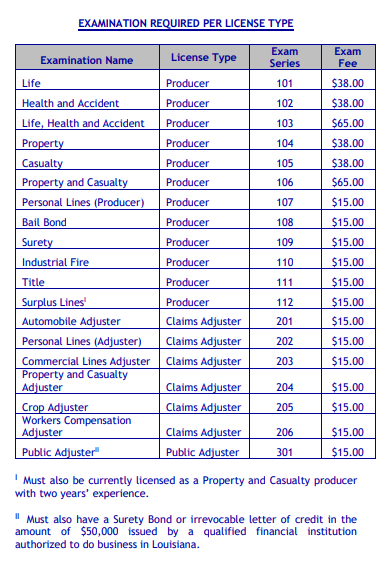
Stocks and real estate are excellent investments, but each one has its advantages and disadvantages. Here are some of the key differences between them: Liquidity. Risks. Location. And Profits. For those looking to create a long-term passive income stream and a steady stream of capital, real estate investment may be the better option. Real estate not only offers the opportunity for significant appreciation but also provides passive income. Stocks on the other side are susceptible to inflation, market, and economic risks. Although stocks can be bought or sold quickly, they do not require large cash investments.
Profits
Real estate investing has many benefits. For starters, real estate can create cash flow. Cash flow is the money left after expenses are paid. Renting income can help offset expenses and keep money in your pockets. The longer you own a property, the stronger your cash flow will be. Additionally, you can take advantage of a variety of tax breaks and deductions for real estate. These tax breaks include deductions for reasonable expenses related to operation and ownership.
Investing in real estate provides the flexibility that many investors need. You can slowly build a portfolio, and then supplement your income with rental income. Fix-and-flip income can be used as your primary source of income. You have complete control over your property and can manage it according to your needs. Plus, you are your own boss. No one else is dictating your hours, and there are no salary limits when it comes to working in this field.

There are risks
Real estate investing is more risky than stocks. It is important that you understand the differences. Stocks are more volatile than real estate. Real estate is less likely to lose capital because you can use the land as collateral. On the other hand, stocks are more liquid, so you can cash out at any time. In addition, stocks can generate income through dividends. Investors should be aware that stock prices can fluctuate and could cause investors to make emotional decisions.
There is also a greater risk associated with stocks. You must wait for your return before seeing a positive effect. Stocks are able to return 10% annually, but real estate can return three to four percent. But, even if you invest at least 20% in the property's value, you still get a 20% annual return. That is a far better return than stocks. It is difficult to find properties with high values that you can sell for less than what they were worth. Further, you could face a tax penalty if you sell your property in a short period of time, which is also higher than the real estate market's normal return.
Liquidity
Liquidity describes the ease with which investors can convert their investments into cash. Stocks are more liquid and can be sold at regular market hours. Although it can take several days to sell a stock position, investors can still get their money whenever they wish. In contrast, real estate investments are not so liquid, and it may take many years for them to appreciate in value.
Another benefit of investing in real property is the possibility of earning income, instead of capital gains. This makes it much easier to automate. The income component also automatically increases with inflation. This allows investors to spend their real-estate profits faster. Another benefit to real estate investing is its lower volatility. This means that withdrawals are more stable and less likely be affected by short term volatility. It doesn't matter what your personal preferences are, you will find a strategy that works for you.

Lage
Direct investing in real estate is not for everyone. You should still consider real estate if you wish to have a balanced portfolio. The stock market can be manipulated and accessed easily. Also, investing directly in real estate is far less risky and more profitable than investing in index funds. Here are some tips for investors who are considering real estate investments.
FAQ
What amount of money can I get for my house?
It all depends on several factors, including the condition of your home as well as how long it has been listed on the market. Zillow.com shows that the average home sells for $203,000 in the US. This
How can I repair my roof?
Roofs can become leaky due to wear and tear, weather conditions, or improper maintenance. Roofers can assist with minor repairs or replacements. For more information, please contact us.
How many times can my mortgage be refinanced?
This depends on whether you are refinancing with another lender or using a mortgage broker. Refinances are usually allowed once every five years in both cases.
Statistics
- Private mortgage insurance may be required for conventional loans when the borrower puts less than 20% down.4 FHA loans are mortgage loans issued by private lenders and backed by the federal government. (investopedia.com)
- It's possible to get approved for an FHA loan with a credit score as low as 580 and a down payment of 3.5% or a credit score as low as 500 and a 10% down payment.5 Specialty mortgage loans are loans that don't fit into the conventional or FHA loan categories. (investopedia.com)
- Based on your credit scores and other financial details, your lender offers you a 3.5% interest rate on loan. (investopedia.com)
- This seems to be a more popular trend as the U.S. Census Bureau reports the homeownership rate was around 65% last year. (fortunebuilders.com)
- 10 years ago, homeownership was nearly 70%. (fortunebuilders.com)
External Links
How To
How to Purchase a Mobile Home
Mobile homes are homes built on wheels that can be towed behind vehicles. They were first used by soldiers after they lost their homes during World War II. People today also choose to live outside the city with mobile homes. These homes are available in many sizes and styles. Some are small, while others are large enough to hold several families. There are even some tiny ones designed just for pets!
There are two main types mobile homes. The first type is produced in factories and assembled by workers piece by piece. This occurs before delivery to customers. A second option is to build your own mobile house. First, you'll need to determine the size you would like and whether it should have electricity, plumbing or a stove. Next, ensure you have all necessary materials to build the house. The permits will be required to build your new house.
Three things are important to remember when purchasing a mobile house. You might want to consider a larger floor area if you don't have access to a garage. A model with more living space might be a better choice if you intend to move into your new home right away. The trailer's condition is another important consideration. Damaged frames can cause problems in the future.
It is important to know your budget before buying a mobile house. It is important to compare the prices of different models and manufacturers. Also, take a look at the condition and age of the trailers. While many dealers offer financing options for their customers, the interest rates charged by lenders can vary widely depending on which lender they are.
It is possible to rent a mobile house instead of buying one. Renting allows for you to test drive the model without having to commit. Renting is expensive. The average renter pays around $300 per monthly.